Emacs site says:
The current stable release is 24.4 (released October 20, 2014; see also dates of older releases).
I have installed it on my Ubuntu 14.04, by downloading the source from the emacs site and compiling it. But I used checkinstall and dpkg instead of make install, so dpkg knows about it.
Now Ubuntu software update asks me if I want to update emacs and other emacs packages, if I am not misunderstood, (also See the following list and the screenshots below).
- Common facilities for all emacsen (Changes for emacsen-common versions: Installed version: None. Avaliable version: 2.0.7)
- Emacs (Changes for emacs versions: Installed version: 24.4-1; Available version: 45.0ubuntu1)
- GNU Emacs common non-DFSG items, including the core documentation (Changes for emacs24-common-non-dfsg versions: Installed version: None; Available version: 24.3+1-1)
- GNU Emacs editor (with GTK+ user interface) (Changes for emacs24 versions: Installed version: None; Available version: 24.3+1-2ubuntu1)
- GNU Emacs editor's shared, architecture dependent files (Changes for emacs24-bin-common versions: Installed version: None; Available version: 24.3+1-2ubuntu1)
- GNU Emacs editor's shared, architecture independent infrastructure (Changes for emacs24-common versions: Installed version: None; Available version: 24.3+1-2ubuntu1)
Q:
- Why does Ubuntu software update suggest me another version of emacs, if my installed one is the latest?
- What is the difference between the second item (Emacs), the fourth item (GNU Emacs editor (with GTK+ user interface)) in the update list, and my installed Emacs 24.4?
Should I update the emacs, or install the emacs packages, or neither?
Thanks.

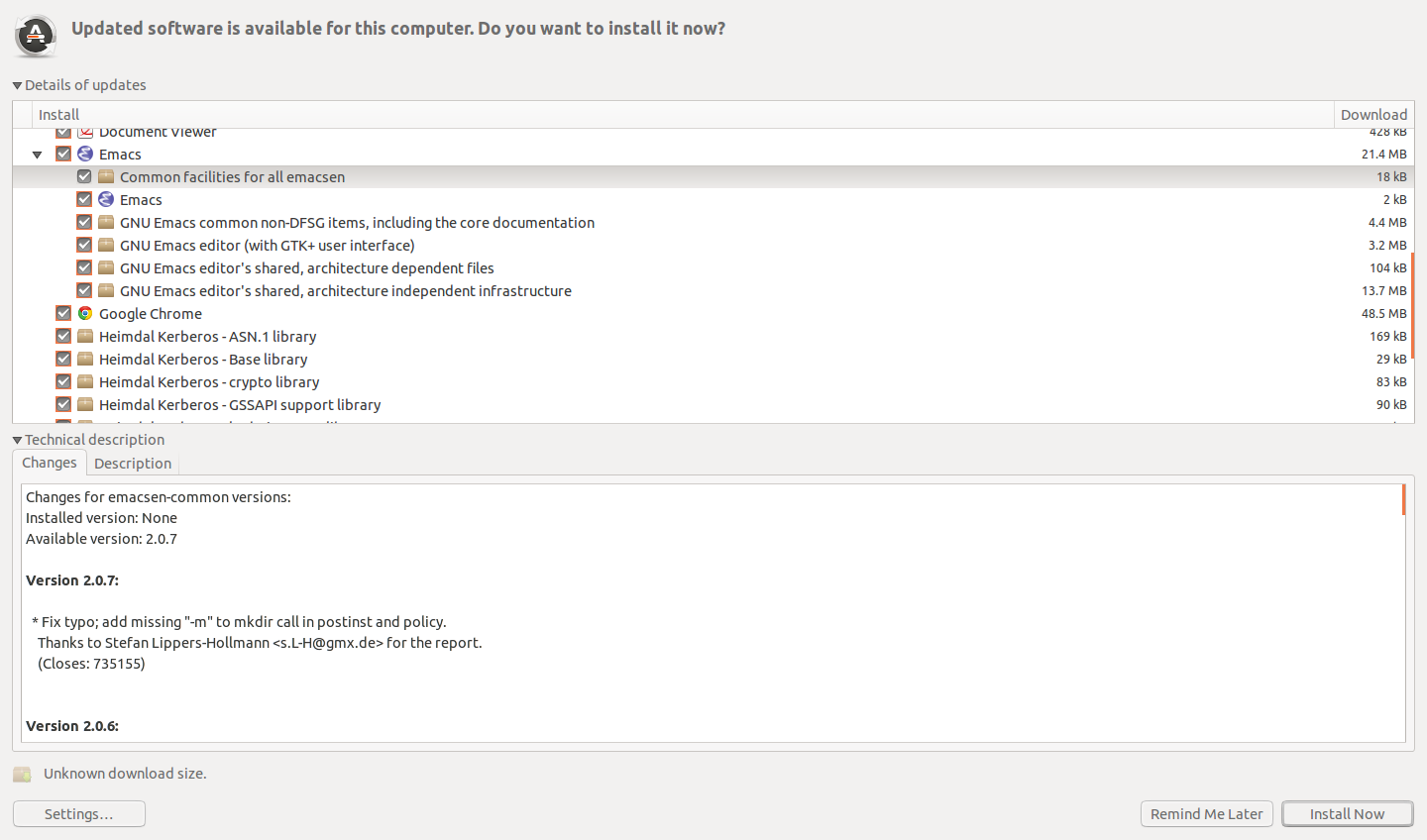
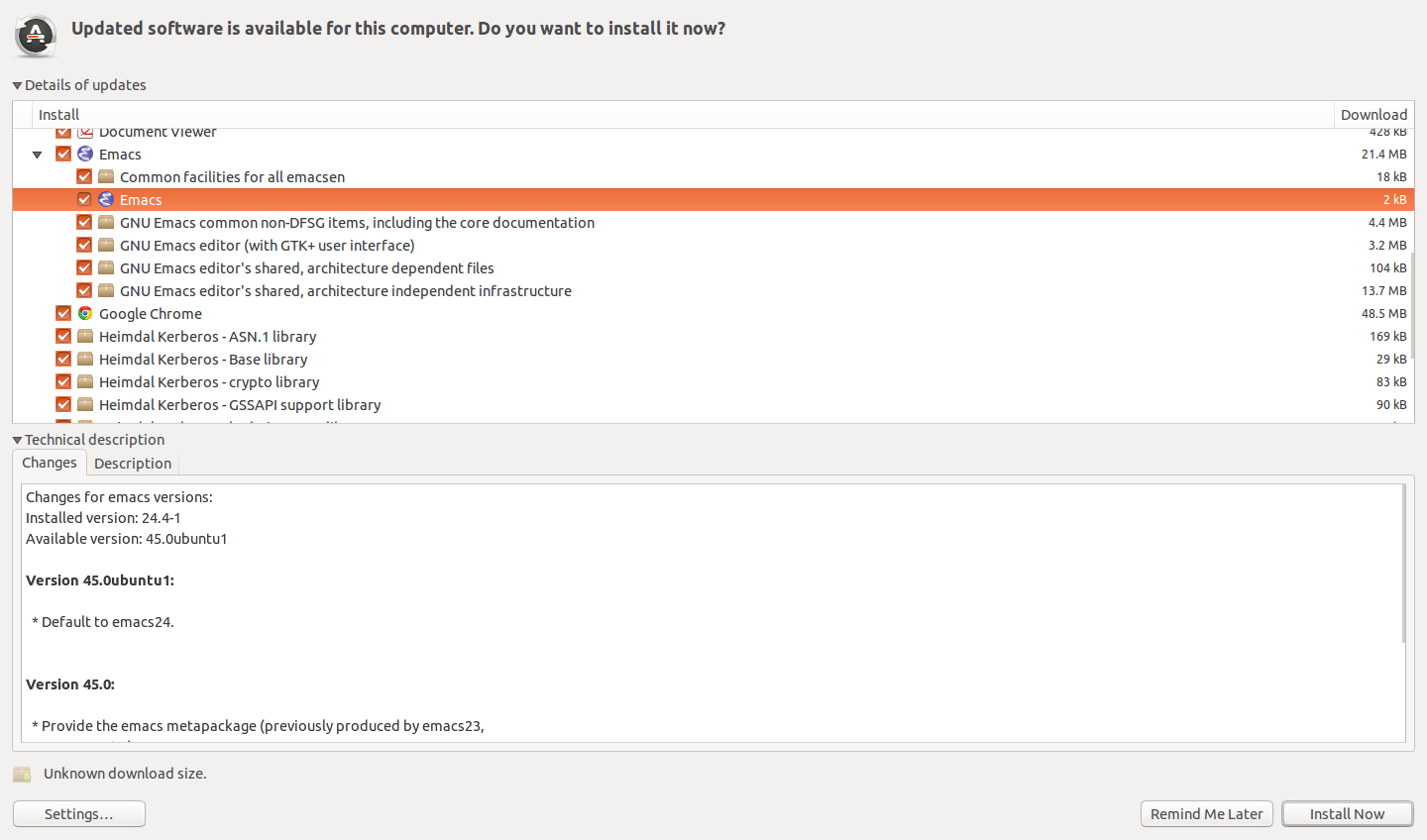

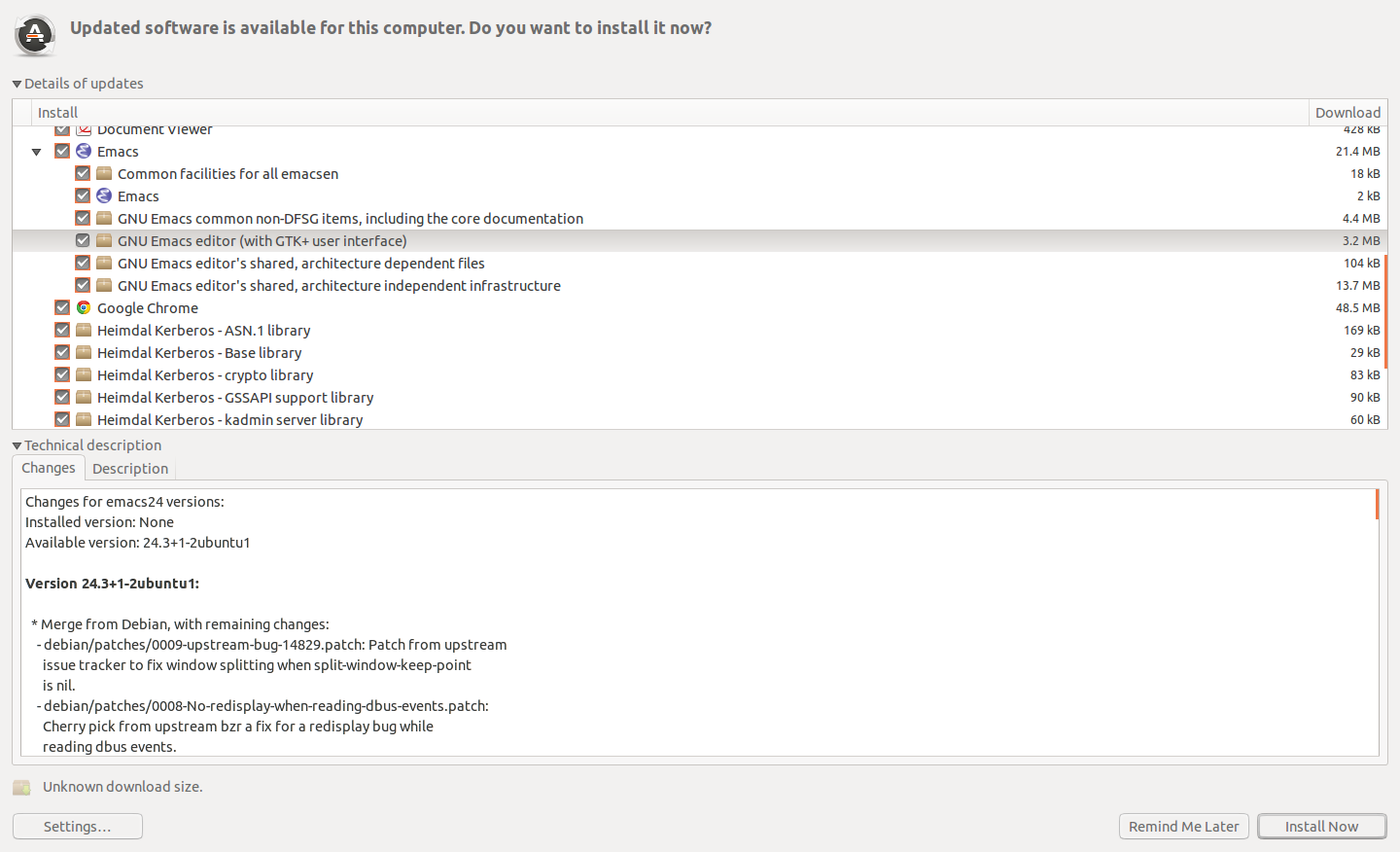
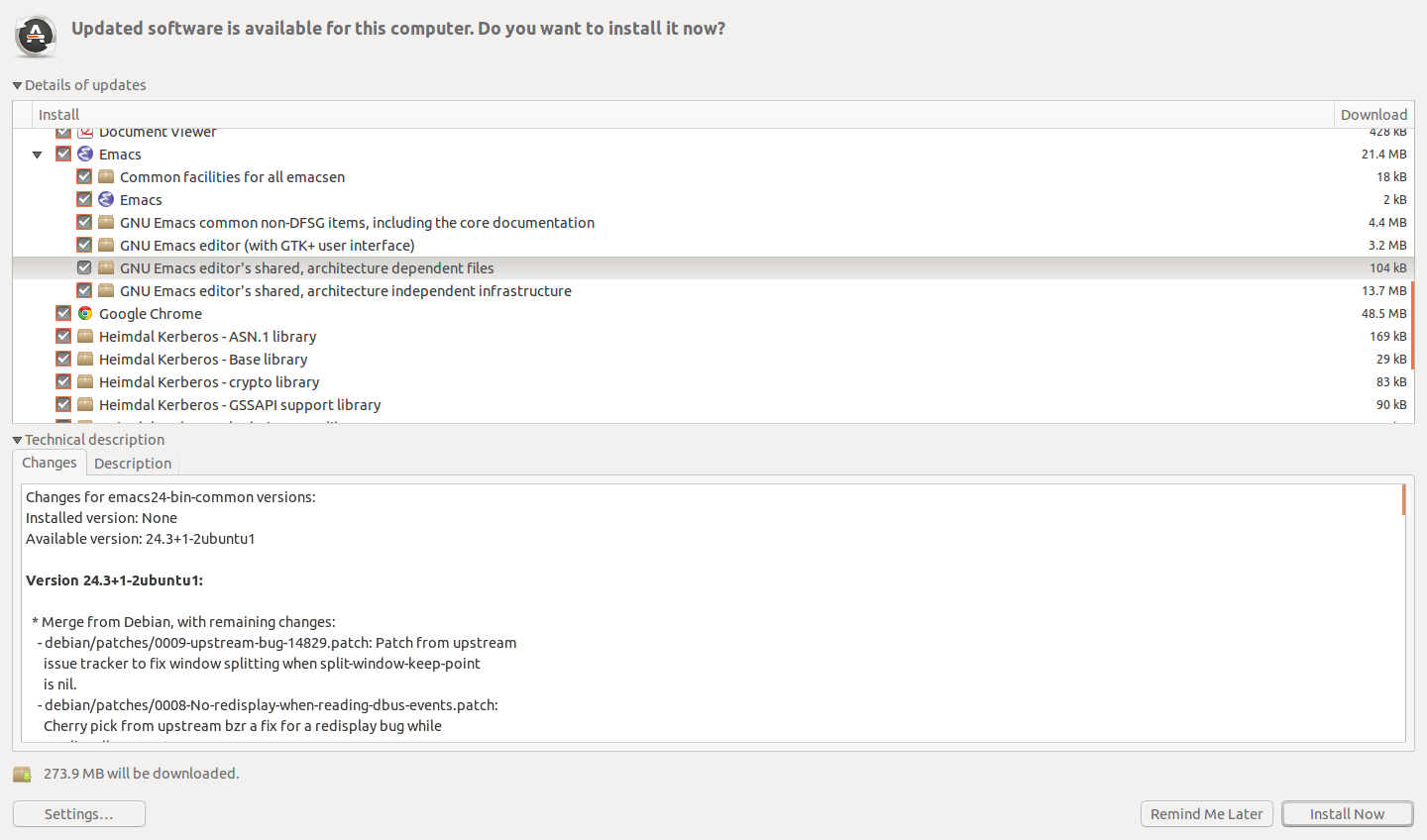
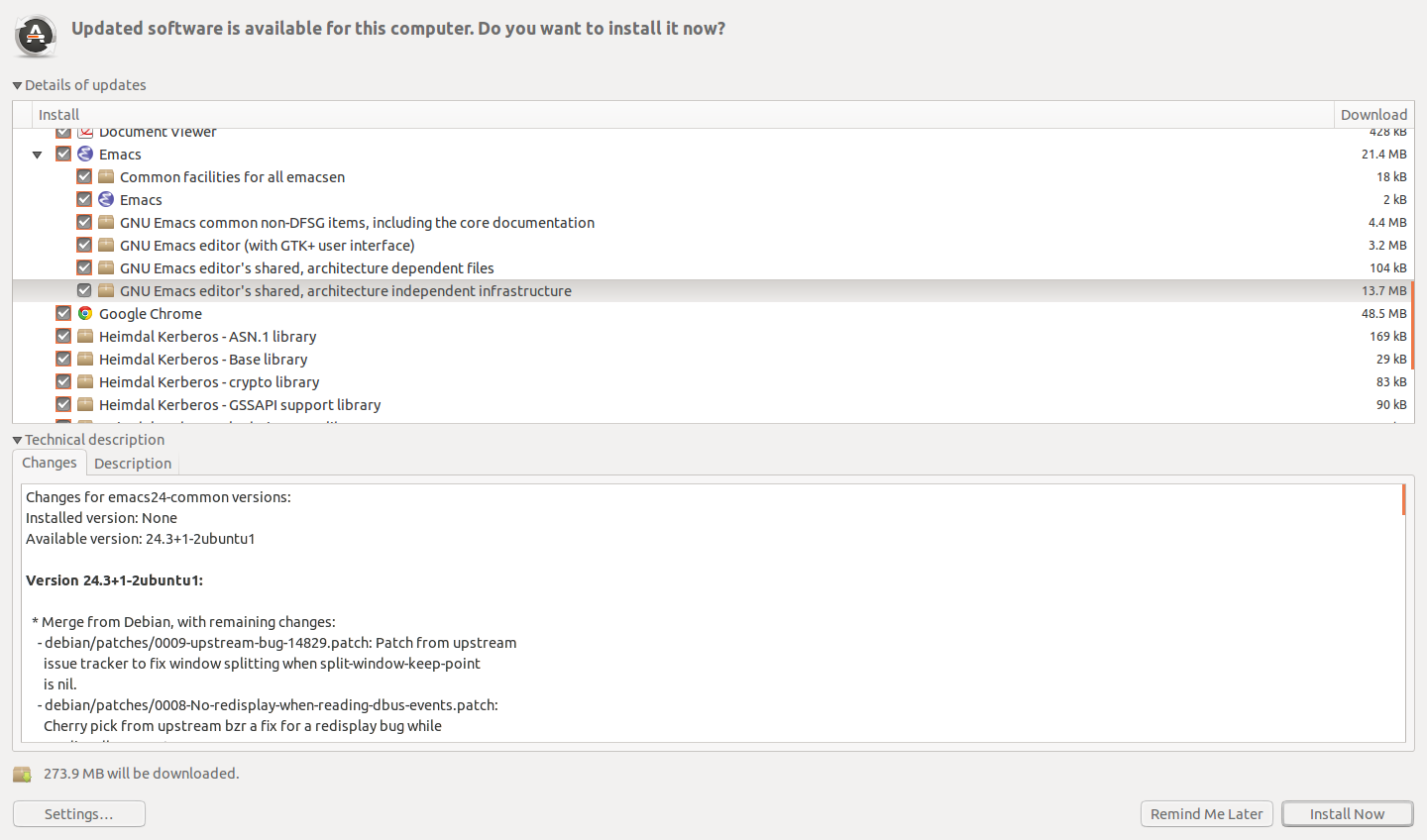

checkinstallanddpkginstead ofmake installto install my emacs, sodpkgand ubuntu knows about it. I wonder why Ubuntu software update suggests me another version of emacs, if my installed one is the latest.apt-cacheoraptitudeand paste the appropriate lines of output. It will be much easier to digest.